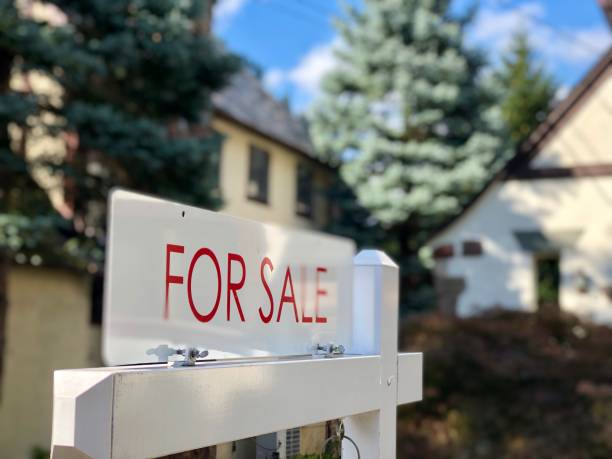How to Sell Your House?
Selling your house can be a complex and emotionally challenging journey. It’s not just about putting up a ‘For Sale’ sign and waiting for offers to come in; it involves a series of strategic steps and decisions that can significantly impact the outcome.
Every homeowner wishes to sell their property quickly, at a good price, and with as little hassle as possible. To achieve this, you need a well-thought-out plan that covers everything from preparing your home for viewings to understanding the financial implications of the sale.
In this comprehensive guide, I’ll walk you through how to sell your house effectively, providing expert tips for selling your home at each stage of the process.
Whether you’re a first-time seller or have been through the process before, you’ll find valuable insights into:
- Preparing your property to make a stellar impression
- Deciding whether to work with an agent or go solo
- Pricing your home competitively
- Marketing techniques that stand out
- Negotiating offers to get the best deal
- Understanding tax implications and other financial aspects
Let’s Get Started!
Let’s dive into the details of selling your house, making sure you have all the knowledge and confidence you need at every step of the way.
If you’re considering renting instead of selling, VIV Capital offers top listings for rental houses in Columbus, Ohio. Alternatively, if you’re ready to sell your home and want a streamlined process designed for homeowners looking for a fast sale, you should check out how it works with VIV Capital – they provide simplicity and efficiency throughout the entire selling journey.
1. Preparing Your House for Sale
When you’re selling your home, the first impression is crucial. The way you present your property can significantly impact its desirability and sale price. That’s why it’s essential to invest time and effort in preparing your house for sale.
Making Repairs and Upgrades
Paying attention to details can make your home stand out from the competition. Here are some tips on making strategic repairs and upgrades:
- Prioritize Key Repairs: Start by fixing any structural issues or critical systems like the roof, HVAC system, or plumbing. Addressing these concerns is vital as they often raise red flags for potential buyers.
- Aesthetic Touches: Simple changes like a fresh coat of paint, new fixtures, or updated hardware can breathe new life into your space without breaking the bank.
- Kitchens and Bathrooms: Investing in these areas often yields a better return on investment as they are high on a buyer’s priority list.
- Energy Efficiency: Consider upgrades that improve energy efficiency, as they are not only appealing due to their environmental impact but also because they offer potential savings on utility bills.
If you’re considering more extensive renovations or need guidance on which areas to focus on, exploring insights from VIV Capital might be beneficial. As a top real estate investment agency specializing in residential properties, their expertise can help maximize your home’s appeal.
Enhancing Curb Appeal through Staging
Staging plays a crucial role in creating an environment that showcases the full potential of your home. It allows buyers to envision themselves living there by highlighting space, functionality, and comfort.
- Decluttering: Remove personal items and excess furniture to make rooms appear larger and more inviting.
- Neutral Palette: Opt for neutral colors to create a blank canvas that allows buyers to imagine their belongings in the space.
- Highlight Strengths: Arrange furniture strategically to accentuate features like fireplaces or beautiful views.
- Outdoor Spaces: Don’t neglect the garden or porch; these areas contribute significantly to curb appeal.
While DIY staging efforts can go a long way, considering professional staging services could be worth the investment. They often result in quicker sales at higher prices.
If you’re managing a rental portfolio and thinking about selling one of your properties, understanding how professional property management can enhance presentation might be useful. For guidance on creating an appealing rental space that could translate well into selling strategies, consider insights from VIV Capital’s rental portfolio.
By dedicating time and resources to preparing your house for sale through thoughtful repairs/upgrades and strategic staging efforts, you’ll set a strong foundation for attracting serious offers when it’s time to list your home on the market.
2. Choosing the Right Selling Method
Deciding on how to sell your home is a crucial decision. You have two main options: hiring a real estate agent or selling it yourself (For Sale By Owner – FSBO).
Each method has its benefits and things to consider.

Working with a Real Estate Agent
Pros:
- Expertise: Agents have knowledge of the market, which can help you price your home correctly and navigate the complex selling process.
- Network: With their contacts and access to multiple listing services, agents can expose your property to a larger pool of potential buyers.
- Negotiation Skills: Experienced in negotiating deals, agents may be able to secure better offers for your property.
- Convenience: They take care of showings, paperwork, and communicating with buyers, saving you time and effort.
Cons:
- Cost: Agents usually charge a commission based on the sale price of your home, which can add up to a significant amount.
- Less Control: Some sellers prefer to be directly involved in every aspect of the selling process, which is limited when working with an agent.
For Sale By Owner (FSBO)
Pros:
- Savings: By not using an agent, you can avoid paying their commissions, potentially saving thousands of dollars.
- Control: You have complete control over decisions related to pricing, marketing, and negotiations.
Cons:
- Time and Effort: Selling a home on your own requires a substantial investment of personal time for tasks such as marketing, showing the house to potential buyers, and learning about legal requirements.
- Market Access: Without an agent’s network, reaching potential buyers mainly relies on your own efforts and alternative platforms.
- Expertise: Pricing your home inaccurately or mishandling negotiations can result in lower offers or a longer time on the market.
When choosing a selling method, consider your own experience in real estate transactions. If you feel confident in your ability to manage the process and are willing to put in the necessary time and effort, FSBO could be a viable option for you.
However, if you value expert guidance and have limited time available to dedicate to selling your house, working with an agent might be more suitable.
It’s important to note that regardless of the selling method you choose, there are resources available to help you. For example, if you’re considering selling your home in Columbus Ohio, companies like VIV Capital offer expert advice on buying homes in that area.
Their insights can assist you in preparing your home for sale and attracting potential buyers by understanding what buyers are looking for in specific areas like Columbus Ohio.
Ultimately, weigh these factors against your personal circumstances to decide on the right selling method for you.
3. Setting a Competitive Price
Setting the right price for your house is crucial. It can make or break your chances of selling quickly and getting the best return on your investment. Here’s how you can do it effectively:
Analyzing the Market/Comparables
Before setting a price, do thorough research on the market and comparable properties:
- Check out recent sales in your neighborhood. Look for homes that are similar to yours in terms of size, condition, and features.
- Take note of any differences between your property and the comps. Adjust your price expectations accordingly.
- Understand the current market conditions. Is it a seller’s market where homes are selling quickly, or a buyer’s market where properties are staying on the market for longer? This information will help you gauge pricing competitiveness.
Setting Competitive Price
When it comes to pricing, follow these steps:
- Gather data on comparable sales: Look at homes sold within the last three to six months to identify pricing trends.
- Consider other homes currently listed: These are your competition. Avoid pricing too high compared to similar properties.
- Factor in unique features: Does your home have any special amenities or upgrades? Adjust the price accordingly.
- Leave room for negotiation: Buyers often expect to bargain, so set your initial listing price slightly higher than what you’re willing to accept.
- Stay flexible: If you’re not receiving much interest after a few weeks, be open to revisiting and adjusting your price.
Remember, setting a competitive price requires a combination of data analysis and understanding what makes your home stand out. By following these steps carefully, you increase your chances of attracting interested buyers who recognize the value of your property.
4. Marketing Your Property Effectively
When it’s time to put your house on the market, crafting an attractive listing is key to drawing in potential buyers. Here are some strategies to ensure your property gets noticed:
Write Compelling Descriptions
Your listing description is a prospective buyer’s first introduction to your home. It should highlight the unique features and benefits of your property. Be sure to:
- Use descriptive language that paints a picture for the reader.
- Mention any upgrades, recent renovations, or desirable features like hardwood floors or granite countertops.
- Include information about the neighborhood, proximity to good schools, local amenities, and transportation.
Utilize High-Quality Photographs
Photos can make or break a buyer’s interest in your property. Consider these points for impactful imagery:
- Professional Photography: Hiring a professional can be invaluable as they know how to capture your home in the best light. Quality images emphasize spaciousness and natural light, making rooms appear more inviting.
- Feature Key Areas: Focus on areas that sell houses – kitchens, bathrooms, and outdoor spaces. Ensure these photos are clear and demonstrate the value of your home.
- Virtual Tours: Offer a virtual tour option if possible. This allows potential buyers to imagine themselves living in the space.
Leverage Online Platforms
In today’s digital age, most house hunts begin online. Make sure your listing gains traction by:
- Posting on multiple real estate websites for broad exposure.
- Sharing your listing on social media channels with engaging captions.
- Considering targeted ads that reach people looking to buy a house in your area.
5. Negotiating Offers and Closing the Deal
When you receive offers for your home, negotiating with potential buyers is key to reach an agreement that benefits both parties. The goal is to secure a favorable offer while taking into account significant terms and contingencies.
Effective Negotiation Tactics:
- Respond Promptly: Show buyers that you’re serious by responding quickly to their offers.
- Flexibility: Sometimes, being open to negotiation on closing dates or minor repairs can be just as valuable as the sale price.
- Counteroffers: If an offer is below expectations, don’t be afraid to counter. It keeps the dialogue open and can lead to an agreed price.
- Multiple Offers: Use this to your advantage. Letting buyers know there are other interested parties may encourage better offers.
Remember, it’s not just about the price. Review all aspects of the offer, including down payment amount, pre-approval from a lender, and any contingencies like the sale being subject to the buyer selling their current home.
Closing Process Steps:
- Acceptance of Offer: Once you agree on terms, sign the purchase agreement.
- Home Inspection: Buyers will likely schedule an inspection. Be prepared for additional negotiations if issues are found.
- Appraisal: The buyer’s lender will require an appraisal for mortgage approval.
- Final Walkthrough: Typically done a few days before closing, this ensures the house is in agreed-upon condition.
- Closing Day: You’ll sign paperwork to transfer ownership and receive payment.
Tips for a Smooth Transaction:
- Organize Documents: Have all necessary documents ready ahead of time, such as warranties and manuals for appliances staying with the home.
- Clear Title: Ensure there are no issues with your property’s title to avoid delays.
- Closing Costs: Be aware of what costs you’re responsible for as the seller, like real estate commissions or transfer taxes.
Post-Closing Responsibilities:
After closing, focus on transitioning to your next home. Coordinate moving logistics and update your address with necessary services and authorities. If possible, leave behind contact information for the new owners should questions arise about the house post-sale.
By anticipating these steps and preparing accordingly, you can navigate through negotiating offers and preparing for closing confidently, leading up to a successful handover of your home to its new owners.
6. Understanding Tax Implications and Financial Considerations
Selling your house isn’t just about finding the right buyer or getting the best price. It also involves navigating through several financial and tax-related aspects that can significantly affect your profit. Being aware of these factors is essential to avoid surprises when the sale concludes.
Potential Tax Implications
When you sell a home, particularly if it’s for more than you paid, it’s possible to face capital gains tax on your profit.
However, tax laws might allow you to exclude some or all of this gain from your income:
- Capital Gains Tax: This is a tax on the profit made from selling your property. The current tax rate depends on your income bracket and how long you’ve owned the property.
- Tax Professional Advice: Given the complexity of tax laws, seeking advice from a qualified tax professional is highly recommended. They can provide personalized guidance tailored to your specific situation.
Common Closing Costs
Closing costs are various fees associated with selling a house, usually totaling between 2% and 5% of the sale price. As a seller, you may be responsible for covering certain costs or negotiating who pays what during the sale:
- Real Estate Commissions: Typically around 5% to 6% of the sale price, paid to real estate agents involved in the transaction.
- Attorney Fees: If legal assistance is used during closing, these fees compensate for their services.
- Transfer Taxes: These are state and/or local taxes imposed on the transfer of property ownership.
IRS “Gain on Sale” Rule
The Internal Revenue Service (IRS) has guidelines known as the “gain on sale” rule which may allow you to exclude up to $250,000 (or $500,000 for married couples filing jointly) of gain from your taxable income if you meet certain conditions:
- The property must have been your primary residence for at least two out of the five years prior to selling.
- You haven’t excluded gain from another home sale in the two-year period before this sale.
Remember, these are general guidelines. For advice tailored to your circumstances, including how recent changes in tax law could impact your situation, always consult with a tax professional.
By understanding these financial considerations early in the selling process, you position yourself for a smoother transition and can better predict your financial outcome after closing.
Conclusion
Selling your home is a big decision, and the process of selling a house can be complicated. But with the strategies in this guide, you can make it easier and more confident. Remember, being prepared is important—whether you’re fixing things, making your home look nice from the outside, or choosing the right price.
It’s okay to ask for help if you want to get the best result for your property. Real estate professionals have a lot of knowledge and can support you. But remember, you can also do things yourself, especially when it comes to promoting your house.
If you want more advice on selling your house, here are some places to look:
- Real Estate Websites: Many websites have detailed articles, checklists, and tools specifically for sellers.
- Local Real Estate Seminars: Attend events where experts talk about what’s happening in the market right now.
- Books and eBooks: Find books that go into depth about different parts of selling a house.
“Sell my house” might sound scary right now, but once you know what to do, each step will feel easier. Keep learning, stay updated, and take charge of selling your home.
Frequently Asked Questions
Approaching the process of selling a house strategically is important because it can help attract potential buyers and achieve a higher sale price. In this article, we will provide a comprehensive guide on how to sell your house effectively, covering each stage of the selling process with expert tips and advice.
Preparing the house for sale is crucial because it can attract buyers and help in achieving a higher sale price. It sets the stage for creating a positive first impression and showcases the property’s best features, ultimately making it more appealing to potential buyers.
Working with a real estate agent offers market expertise and convenience but may come with additional costs. Selling the house yourself can save on commission fees but requires more effort and knowledge of the selling process. The most suitable method depends on the seller’s experience and available resources.
Accurately pricing the property is important to attract potential buyers while maximizing returns. It ensures that the property remains competitive in the market and does not deter potential buyers due to an unrealistic or overpriced listing.
Key strategies for marketing a property effectively include creating compelling listings with high-quality photographs, utilizing online platforms, and emphasizing the best features of the house. Professional photography plays a significant role in capturing these features and generating buyer interest.
Common tax implications include capital gains tax, while closing costs typically include real estate commissions, attorney fees, and transfer taxes. Sellers may also be eligible for a tax exemption on any profit made from selling their primary residence under IRS guidelines known as the ‘gain on sale’ rule.

A Guide to Buying Distressed Homes: Opportunities in Real Estate
A Guide to Buying Distressed Homes: Opportunities in Real Estate The real estate market offers

Buying A House With Bad Credit: A Guide To Your Home Loan Options
Buying A House With Bad Credit: A Guide To Your Home Loan Options Buying a

Distressed Property: Everything You Need to Know
Distressed Property: Everything You Need to Know If you are searching for distressed properties for

Top Strategies for New Investors in Competitive Real Estate Markets
Top Strategies for New Investors in Competitive Real Estate Markets he world of real estate

The Role of Tech in Investment Real Estate: Trends in Digital Property Tools
The Role of Tech in Investment Real Estate: Trends in Digital Property Tools Introduction At

Buying a Home Close to Power Lines: What You Need to Know
Buying a Home Close to Power Lines: What You Need to Know Introduction When considering

